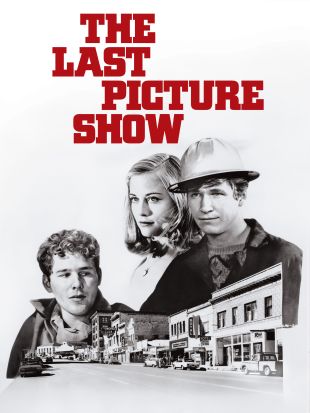Of the new wave of young American directors who emerged in the early 1970s, Peter Bogdanovich displayed the strongest affinity for the Old Masters of Hollywood's Golden Era, particularly Howard Hawks and John Ford, and The Last Picture Show drew more consciously and effectively from their styles than any other film of its day. With its sharply defined black-and-white framing and simple, straightforward camera setups, The Last Picture Show resembles a classic Hawks or Ford picture; but, while those directors used their techniques to tell sweeping tales of the American frontier, Bogdanovich instead examined a tiny Texas town crumbling into dust in the early 1950s. In The Last Picture Show, the cowboys, Indians, and settlers of Stagecoach or Red River have been replaced by wealthy but ineffectual oilmen with bored wives, and high school kids looking for excitement or a future in a town that offers neither. The sole strong adult role model, Sam the Lion (Ben Johnson, a member of Ford's stock company), is a scruffy misfit showing his age and losing his health; if he's the town's last tie to the strong and noble men of the Old West, he's also decaying as fast as the town itself. Anarene has been reduced to a dusty little Peyton Place, where everyone knows everyone else's sordid little secrets and sexual peccadilloes; when Sam the Lion dies, the town loses its last pillar of dignity, with the later closing of the town's only movie house (where Red River is the last feature) serving as the most obvious symbol of its slow, inexorable decline. The strongest people are the ones who can leave, while those who stay behind follow a circle of heartbreak and romantic betrayals. "You can't believe how this town has changed," Sam says at one point to Sonny Crawford (Timothy Bottoms), always the boy who needed his guidance the most, and Johnson gives those words a rueful weight that makes it one of the most telling moments of this sad, sometimes funny, and deeply moving film.

The Last Picture Show (1971)
Directed by Peter Bogdanovich
Genres - Drama |
Sub-Genres - Americana, Ensemble Film, Coming-of-Age, Slice of Life |
Release Date - Oct 3, 1971 (USA - Limited), Oct 22, 1971 (USA - Unknown), Oct 22, 1971 (USA) |
Run Time - 118 min. |
Countries - United States |
MPAA Rating - R
Share on